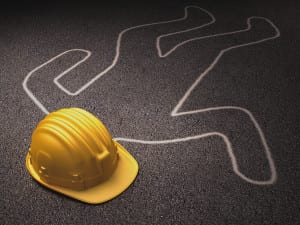Duty to Provide Fall Protection in Work Areas
 Failure to Provide Fall Protection is #1 Cited Osha Violation – Legal Outcome Depends on Existence of Employer/Employee Relationship
Failure to Provide Fall Protection is #1 Cited Osha Violation – Legal Outcome Depends on Existence of Employer/Employee Relationship
The failure of an employer to provide fall protections is the number one OSHA violation. There is no question regarding the duty of employers of all stripes to provide fall protection. Likewise, OSHA standards on fall protection are clear and well established. The question becomes what happens when the standards are violated and someone is harmed?
The answer will come down to who that person is and how he or she is related to the employer.
General Requirements for Fall Protection
The standards are very specific and detailed. However, at the risk over-simplification, the gist of the requirements is that employers provide safe walkways and work areas. Included in this requirement is a requirement for necessary “guardrail systems, safety net systems, or personal fall arrest systems.”
The requirements are broadly applied but in part are dictated by the work environment and the type of work performed. The burden is on the employer to show why a deviation from these standards was appropriate and excluded from the requirements.
Recourse for Employees Harmed in Falls in Violation of OSHA
The OSHA standards are written for the protection of workers, most of which are employees. The problem for employees in New Mexico is the New Mexico Workers’ Compensation Act. The Workers’ Compensation Act in New Mexico, like most states, is purportedly written to protect workers. However, this is anything but true.
In fact, the Workers’ Comp Act is written for the protection of employers when it comes to negligence, which a violation of OSHA would most assuredly be. In cases of injury to employee workers injured as a result of the negligent violation of OSHA, the worker is prevented from suing the employer for personal injuries under the Workers’ Comp exclusive remedy provisions.
The exclusive remedy provisions mean that an employee worker is limited to workers’ compensation benefits for any injuries suffered on the job. This covers everything from trivial injuries to death. It covers routine accidents to accidents caused by the gross negligence of the employer. In New Mexico, exceptions to the exclusive remedy provision are extremely rare; basically requiring deliberate and willful acts of the employer with virtual certainty of injuries or death.
This is a near impossible standard for an employee to overcome. The result is that in cases of serious injuries or wrongful death, the worker receives a mere pittance for his injuries no matter how negligent the employer.
Recourse for Independent Contractors or Other Non-Employees
The outcome is far different in cases involving independent contractors or any other non-employee including guests, vendors, inspectors and so on. The employer in these cases receives no protection under the Workers’ Compensation Act.
In these cases, the non-employee has every available remedy under personal injury and wrongful death law. In these cases, violations of OSHA rules regarding fall protection would be very important in the determination of liability (financial responsibility) of the employer/business who failed to abide by those standard.
Serious, ongoing or repeated violations might also go to damages. In these cases, there might be a very good argument for punitive damages. Punitive damages awarded are typically multiples of actual compensatory damages. Punitive damages are meant to deter bad behavior and many times the money involved is all that prevents future similar violations by the same employer, employers in the industry and employers generally.
Work Injury Claims are Complex – Experienced Legal Guidance is a Must
There are a number of complexities and complications that come with work injury claims. Rest assured, the first response from the employer/business will be flat denial of wrongdoing and liability. In cases of serious injury or death, it is important to seek answers. Part of this means determining the application of the Workers’ Compensation Act and safety standards that apply to the particular situation.
This can get a little bit tricky and confusing. It is advisable to have an experienced attorney at your side. The Albuquerque attorneys at Collins & Collins, P.C. can be reached at (505) 242-5958


